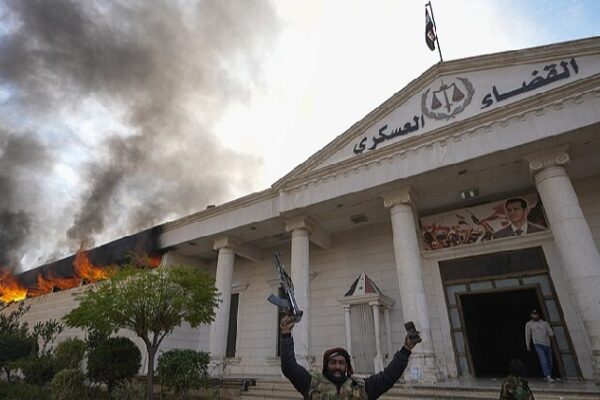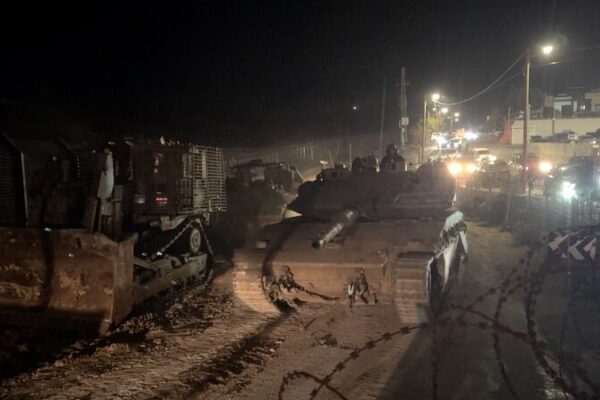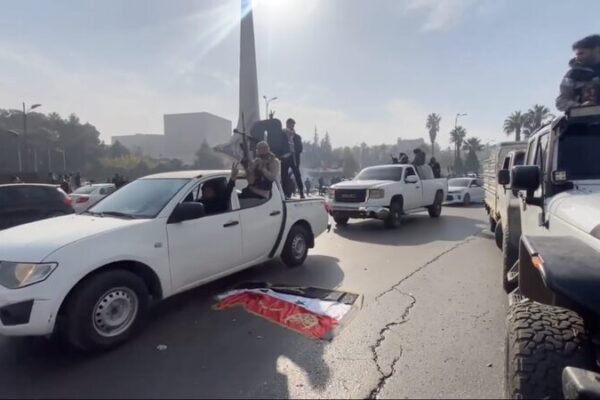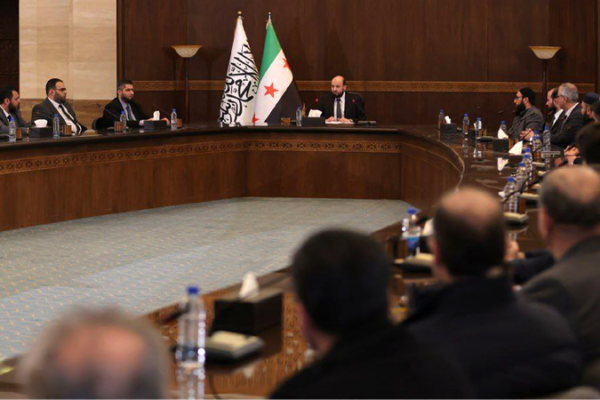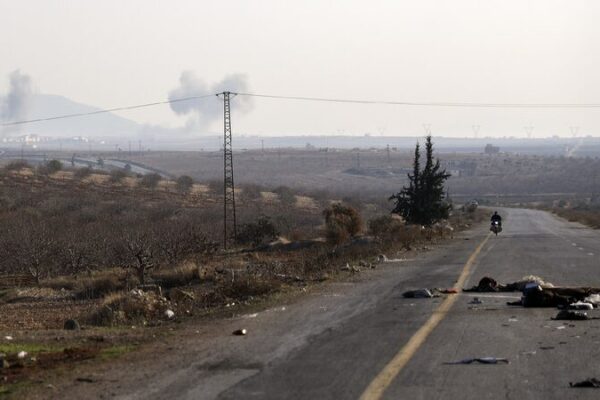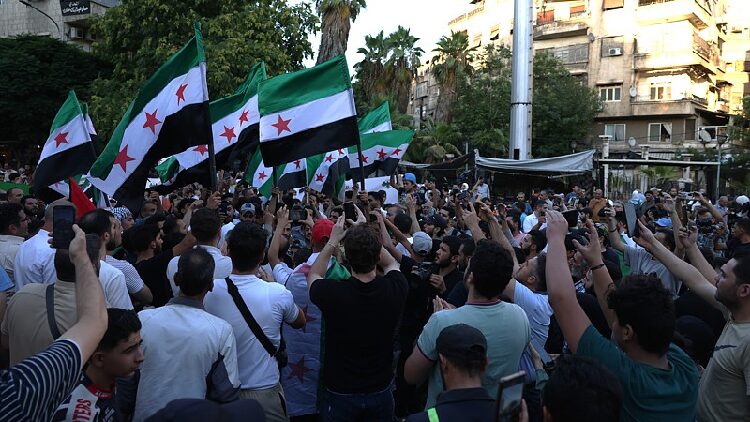Syrian Rebels Enter Damascus Amid Calls for Political Resolution
In a dramatic escalation of Syria’s ongoing conflict, rebel groups announced on Sunday that they have begun entering the capital city of Damascus without encountering any army resistance. Celebrations erupted as they declared the release of prisoners from Sednaya prison, marking what they described as “the end of the era of injustice.”
Reports suggest that President Bashar al-Assad has departed Damascus for an undisclosed location. Meanwhile, all flights at Damascus International Airport have been suspended, with staff evacuated amid the unfolding events.
Rebels Seize Strategic City of Homs
Earlier on Sunday, rebel fighters claimed full control over the key city of Homs, located approximately 140 kilometers north of the capital. Ahmed al-Sharaa, leader of the Hayat Tahrir al-Sham (HTS) group, hailed the capture of Homs as a “historic event that will distinguish between truth and falsehood.” The city is the third major urban center seized by the rebels since they reignited their offensive on November 27, rekindling a years-long war that had been largely dormant.
Government Faces Existential Threat
The fall of Homs and the advance towards Damascus pose a significant threat to the Syrian government. Observers note that losing Homs could sever crucial supply lines between Damascus and vital Mediterranean ports like Latakia and Tartus. Latakia, in particular, is not only strategically important but also holds symbolic value as President Assad’s hometown and a stronghold of his Alawite sect.
“The loss of Homs will exert enormous psychological pressure on the government,” noted a regional commentator. The capture symbolizes the rebel movement’s dramatic resurgence in a conflict that has spanned 13 years.
Regional Concerns and International Calls for Dialogue
The rapid developments have sent shockwaves through Arab capitals, raising fears of a new wave of regional instability. Qatar, Saudi Arabia, Jordan, Egypt, Iraq, Iran, Türkiye, and Russia issued a joint statement expressing deep concern over the crisis and urging a political solution.
The United Nations reported that the escalating violence has displaced approximately 370,000 people. UN Special Envoy to Syria, Geir Pedersen, called for “urgent political talks” to implement a 2015 Security Council resolution outlining a roadmap for a negotiated settlement.
Shifting Alliances and Global Responses
Assad’s government has historically relied on international allies to suppress rebel forces. Russian air support and Iranian-backed militias have been instrumental in previous campaigns. However, Russia’s focus on other international issues and challenges faced by allied groups have limited their capacity to assist in this critical moment.
With Homs under rebel control, Russia’s military presence in Syria faces significant logistical challenges due to disrupted access routes. Analysts suggest that strategic decisions may need to be made to safeguard their assets in the region.
Diplomatic efforts are underway to address the crisis. Iran’s top diplomat announced an agreement with regional counterparts to initiate political dialogue between the Syrian government and rebel groups. International leaders are emphasizing the importance of a political resolution to prevent further escalation.
Reference(s):
Syria rebels begin entering Damascus amid calls for political solution
cgtn.com

